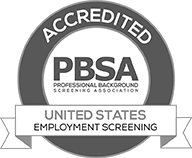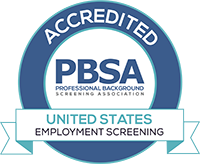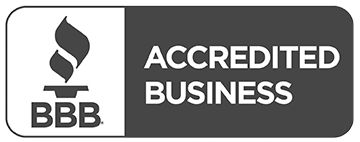BLOG
Does A Nevada Law Violate Federal Laws?
November 26, 2019
Three organizations teamed up to file a lawsuit that claims a Nevada bill is not compliant with the FCRA and ECOA.
About The Lawsuit
A lawsuit was filed against the Nevada Attorney General and the Commissioner of the Nevada Financial Institutions Division. There were three plaintiffs in this case, the American Financial Services Association, the Nevada Credit Union League and the Nevada Bankers’ Association. They believe a bill that went into effect on October 1, 2019 is in violation of the Fair Credit Reporting Act (FCRA) and the Equal Credit Opportunity Act (ECOA).
This lawsuit calls for the bill to be pre-empted by federal law. It states that Nevada State Bill 311 (SB311) is “hopelessly unworkable” and should be stricken.
The Nevada Bill
SB311 creates a scenario in which a person who has no credit history may be able to use the credit history of their spouse or former spouse. A sponsor of this bill provided an explanation, saying it was meant to help individuals who “may not be able to obtain credit, even though the person contributed to the development of the couple’s credit history because the credit history is entirely in the spouse’s name.”
Under certain circumstances, this bill would require organizations to disregard the fact that an individual has no credit history of their own. Instead, they would have to rely on the credit history of a second individual with the idea that the first person helped contribute to that history.
The plaintiffs suggest that complying with SB311 would cause them to violate the FCRA. They believe it would require an organization to access credit history information for a person, which means they would be obtaining a consumer report without a permissible purpose. That is expressly prohibited by federal law.
In addition, the plaintiffs claim that SB311 violates the ECOA. That Act prohibits creditors from asking for credit information about an applicant’s spouse or ex-spouse. By following SB311, the plaintiffs believe they would be violating privacy and data security laws.
Defining Permissible Purpose
Before running any type of consumer report, including a credit check, an organization must have a permissible purpose. These purposes are defined within the FCRA. For example, employers may run background checks on people who apply to work as contractors, employees or volunteers. They may also request annual or ongoing background checks on existing employees.
Procuring a consumer report without a permissible purpose, however, is a violation of federal law. Plaintiffs in this case hope that fact will be enough to overturn SB311.
We will watch for news about the situation in Nevada and report on the outcome of this lawsuit.
Running Background Checks
When you have a permissible purpose and written authorization from a consumer, you may request a background check. The team at Backgrounds Online is ready to help. Please contact us to order compliant background checks that contain reportable data you can use to help make informed decisions and create safe workplaces.
Every member of our team that processes background checks earns their FCRA certification and makes efforts to keep up with laws that affect employers. We are available to assist you Monday through Friday from 5am to 6pm PT.











